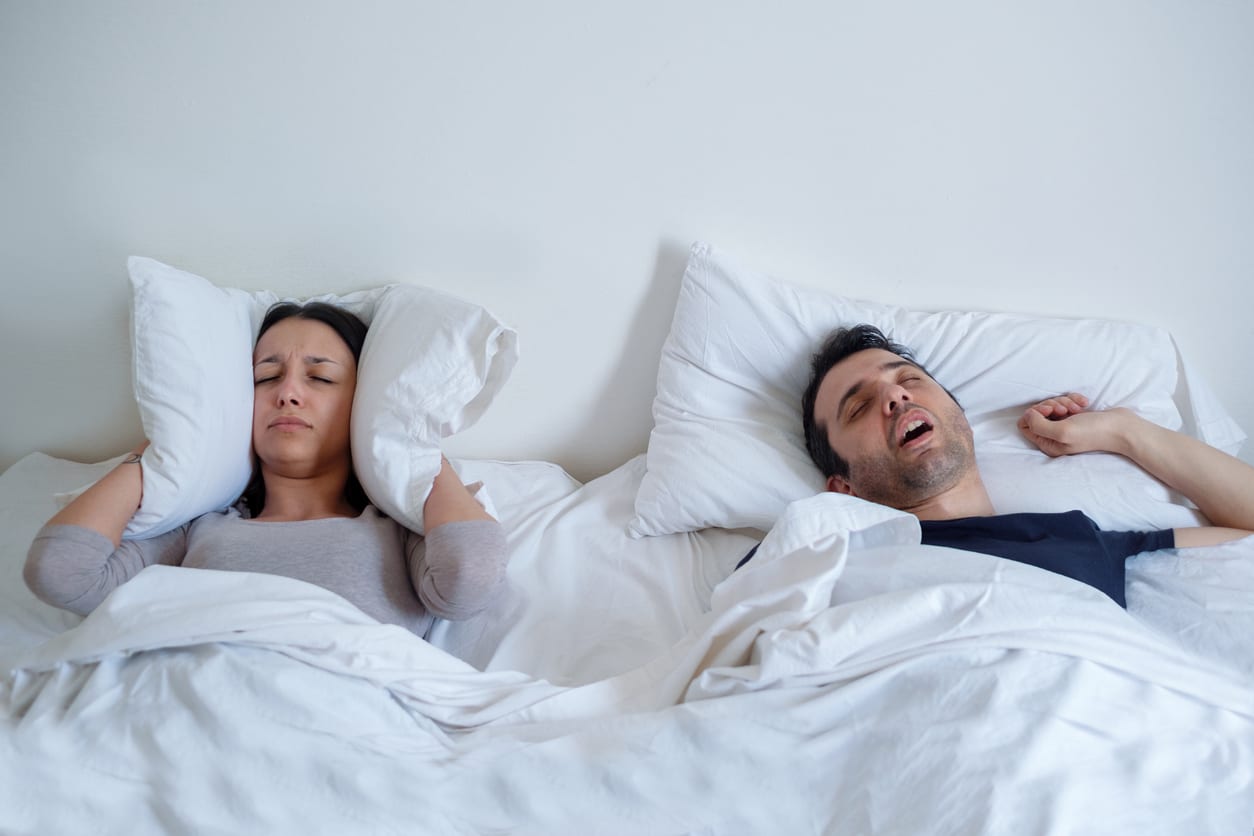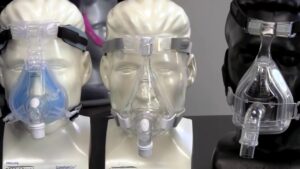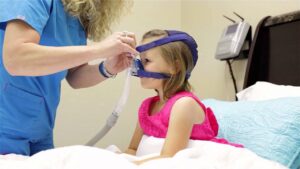Sleep apnea is a potentially dangerous sleep disease in which breathing stops abruptly and resumes in cycles. You may have sleep apnea if you snore loudly and feel fatigued even after a full night’s sleep.
This disease becomes especially dangerous when you are unaware you have it. However, sleep apnea has glaring symptoms that indicate if you have the disease. This post will highlight these symptoms and espouse the causes and effects of this disease. First, though, let us look at the types of sleep apnea.
Types of Sleep Apnea
Obstructive sleep apnea: is the most frequent type of sleep apnea. It happens when the throat muscles relax.
Central sleep apnea: happens when your brain fails to deliver appropriate signals to the muscles that control your breathing.
Complex sleep apnea syndrome: also known as treatment-emergent central sleep apnea, is characterized by both obstructive and central sleep apnea.
It would be best to consult your doctor if you suspect you have sleep apnea. Treatment can alleviate your symptoms while preventing cardiac issues and other complications.
Sleep Apnea Symptoms
The signs and symptoms of obstructive and central sleep apneas overlap, making it difficult to distinguish between them. The following are the most prevalent indications and symptoms of obstructive and central sleep apneas:

- Snoring loudly
- Episodes in which you stop breathing while sleeping — as recounted by another person
- During sleep, you’re gasping for air
- Waking up with a dry tongue
- Early-morning headache
- Sleeping difficulties (insomnia)
- Excessive drowsiness during the day (hypersomnia)
- Having trouble paying attention while awake
- Irritability
Causes of Sleep Apnea
Although all types of sleep apnea have similar effects, they vary slightly in their causes. Below are the causes of various types of sleep apnea.
Obstructive Sleep Apnea (OSA)
When the muscles in the back of your throat relax during sleep, it can cause obstructive sleep apnea. The soft palate, the triangular portion of tissue hanging from the soft palate (uvula), the tonsils, the side walls of the throat, and the tongue are all supported by these muscles.
When you relax your muscles, your airway narrows or closes when you breathe in. In such cases, you’ll not get enough oxygen in your blood because you’re not getting enough air. Further, your brain detects your inability to breathe and momentarily wakes you up so you can reopen your airway. This awakening is usually so quick that you will forget about it.
You may sneeze, choke, or gasp. This process can repeat itself five to thirty times or more each hour, all night, affecting your capacity to achieve deep, undisturbed sleep.
Central Obstructive Sleep Apnea
You may awaken with shortness of breath or have difficulty falling or staying asleep. This type of sleep apnea develops when your brain fails to send signals to your breathing muscles. This anomaly means that you make no attempt to breathe for a little time.

Risk Elements of Sleep Apnea
Anyone, including children, can suffer from sleep apnea. However, several circumstances raise your risk. The following factors enhance the likelihood of this type of sleep apnea:
- Growing older: Sleep apnea is substantially more common in older people.
- Extra weight: Obesity significantly raises the risk of sleep apnea. Fat deposits in the upper airway can restrict breathing.
- Smoking: Smokers are three times as likely than nonsmokers to experience obstructive sleep apnea. Tobacco use can cause inflammation and fluid retention in the upper airway.
- Circumference of the neck Airways may be narrower in people with larger necks.
- Use of sedatives, tranquilizers, or alcohol: These medications can cause obstructive sleep apnea by relaxing the muscles in your throat.
- A clogged airway: You might have been born with a narrow throat. Tonsils and adenoids can also grow and restrict the airway, especially in children.
- Gender: Men are two to three times more likely than women to suffer from sleep apnea. On the other hand, women tend to be at greater risk if they are overweight, and their risk appears to climb after menopause.
- Congestion in the nose: You are more likely to develop obstructive sleep apnea if you have trouble breathing through your nose due to an anatomical condition or allergies.
- Medical problems: Some factors that may raise the risk of obstructive sleep apnea include congestive heart failure, high blood pressure, type 2 diabetes, and Parkinson’s disease. Polycystic ovarian syndrome, hormonal abnormalities, a history of stroke, and chronic lung diseases such as asthma can all raise the risk.
- Heart problems: Congestive cardiac failure raises the risk.
- Using narcotic pain relievers: Opioid drugs, particularly long-acting opioids like methadone, raise the risk of central sleep apnea.
Complications Associated with Sleep Apnea
Sleep apnea is a potentially fatal medical condition. Possible complications include:
- Problems with the liver. Sleep apnea patients are more likely to have abnormal liver function tests, and their livers are more likely to show scarring symptoms (nonalcoholic fatty liver disease).
- Diabetes type 2. Sleep apnea raises your chances of developing insulin resistance and type 2 diabetes.
- Daytime exhaustion. The frequent awakenings caused by sleep apnea make normal, restorative sleep impossible, resulting in significant daytime sleepiness, weariness, and irritability.
- High blood pressure or cardiac issues Sudden reductions in blood oxygen levels caused by sleep apnea raise blood pressure and strain the cardiovascular system. Obstructive sleep apnea increases your risk of hypertension (hypertension).
- You may find it difficult to concentrate and fall asleep at work while watching TV or even while driving. People who suffer from sleep apnea are more likely to be involved in car accidents and occupational mishaps.
- You may also be irritable, moody, or depressed. Children and adolescents with sleep apnea may struggle in school or have behavioral issues.
- Obstructive sleep apnea may also increase your chances of having another heart attack, stroke, or abnormal heartbeats such as atrial fibrillation. Multiple episodes of low blood oxygen (hypoxia or hypoxemia) might lead to sudden death from an irregular heartbeat if you have heart disease.
- The metabolic syndrome. Excessive blood pressure, abnormal cholesterol levels, high blood sugar, and an enlarged waist circumference are all symptoms of this ailment related to an increased risk of heart disease.
- Depriving others of their sleep. Snoring can prevent anyone sleeping nearby from enjoying a good night’s sleep. It’s fairly uncommon for a partner to sleep in another room or even on a different house floor.
- Medication and surgical complications. Certain drugs and general anesthesia might cause obstructive sleep apnea. Because they are prone to breathing problems when sedated and lying on their backs, people with sleep apnea may be more likely to have complications after major surgery. Therefore, inform your doctor about your sleep apnea and how you treat it before surgery.
When Should You Seek Medical Attention?
Snoring can be a sign of a significant problem, although not everyone with sleep apnea snores. If you experience indications or symptoms of sleep apnea, consult your doctor. Consult your doctor if you are tired, sleepy, or irritable due to a sleep disorder.
More to read:
3 Types of CPAP Masks you should know
Best CPAP Machines to Get in 2022
8 Things to Know Before Buying a CPAP Machine



